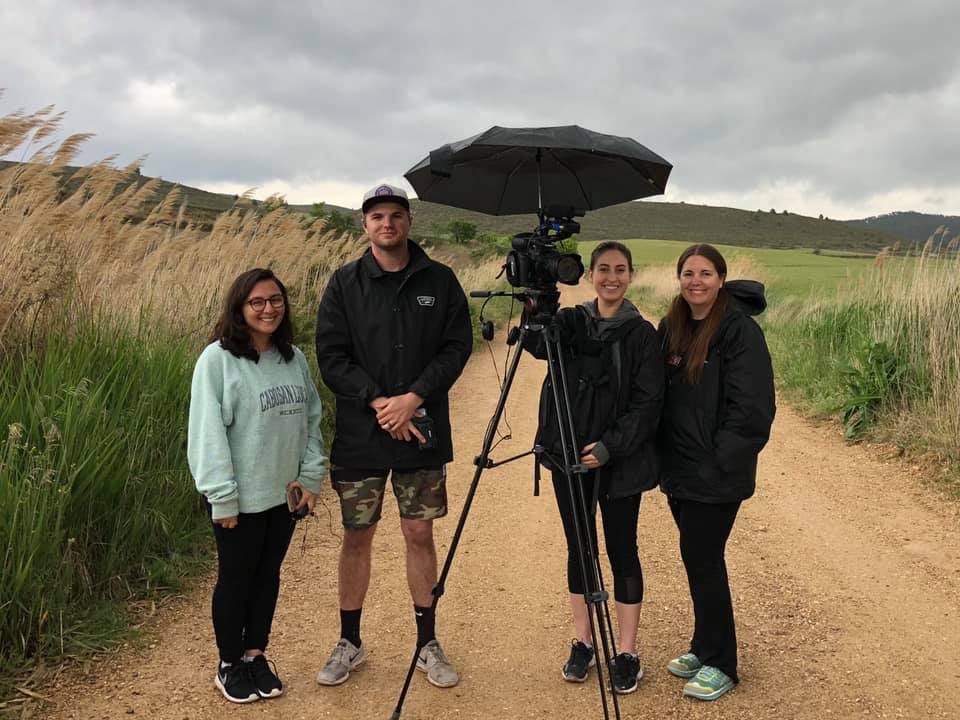The company behind the Emmys honored BYU journalism with a 2020 Student Production Award for their documentary about the Camino de Santiago.

The National Academy of Television Arts and Sciences (NATAS) named a team of five students and three faculty advisers winners of the best long-form nonfiction film. The documentary previously won an Award of Excellence from the Broadcast Education Association as well.
“If you’re going to get an award in television, the NATAS award is the pinnacle,” said professor Melissa Gibbs, who worked on the project along with professors Dale Cressman and Alan Neves. “It’s a very prestigious award. I think it speaks volumes of the quality of education our students are getting.”
The 15-minute documentary was filmed in May 2019 and released in August 2019. Student producers Danielle Hallows, Madeleine Reber, Tre Harris, Angela Cava and Natasha Ramirez followed BYU Spanish majors on a study abroad trip to Spain and captured their pilgrimage along the Camino de Santiago. Project organizers included Cressman, School of Communications director Ed Carter and professor of Spanish literature John Rosenberg.

“Mentored learning is what we’re about here, and I think this was a good example of what we’re able to accomplish together as faculty and students,” Neves said.
Each student contributed to filming and post-production, learned to take videos using drones, trekked a portion of the Camino and experienced on-the-fly training during intense workdays of up to 14 hours.
What makes this documentary stand out is the unique story of the Camino, Gibbs said. Their film explains why people of all faiths walk the route of roughly 500 miles and starts a broader conversation about what it means to be a pilgrim in any religion.
“But what else made this documentary so great was the work, effort and passion the students put into it,” Gibbs said. Gibbs explained that what was supposed to be a spring project took the team until the end of August.
“I see it as a labor of love because there came a point when it wasn’t an assignment anymore,” Gibbs said. “They were committed.”
This sets a precedent for future BYU journalism projects, Dr. Cressman said.
“This is an important step in our efforts to innovate journalism instruction by having faculty, production staff and students collaborate on projects that produce meaningful media messages,” Cressman said.
Gibbs expressed excitement for the opportunities ahead of these five students.
“To put in so much hard work, dedication, and perseverance and to have it pay off is such a great lesson in what you can get if you work hard,” Gibbs said.




